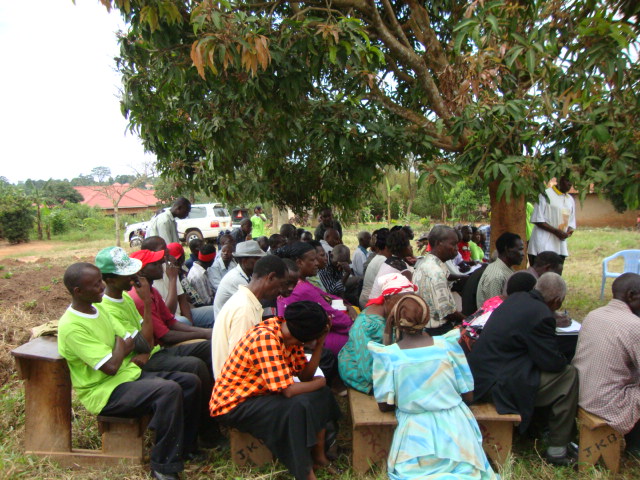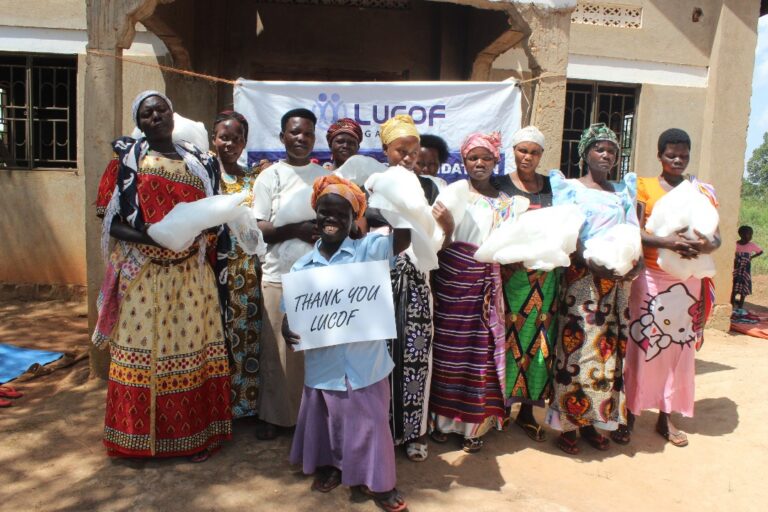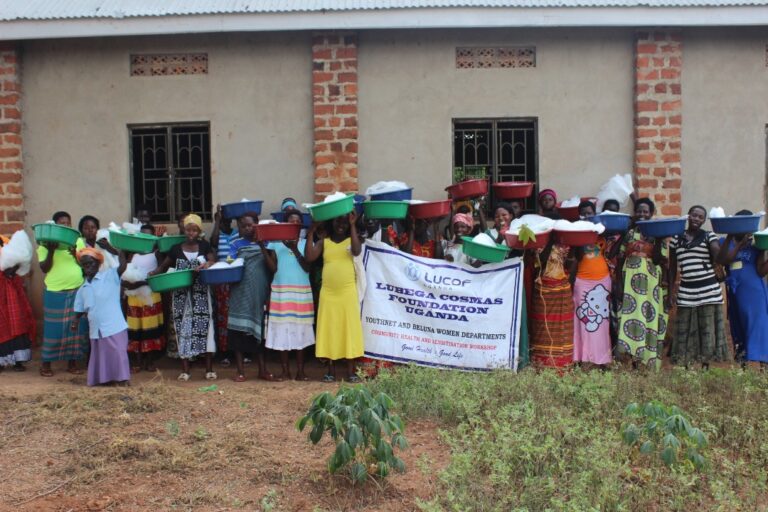


I : At LUCOF, we look at the individual power, skills and competencies our staff member or volunteer.
Team: We then transform that individual capacity to team level, to ensure that we work together to face the community challenges.
Community: We then ensure we add our team power with the community we serve, to ensure we find lasting solutions. Solutions not only come from us, but also from the community.
At LUCOF, we want to create an organization that is bigger than those who founded it—an institution that can continue to operate within the community long after our founders’ retirement. We want to build a generation of empowered Ugandans who have the ability to address their country’s problems without the help of foreign aid. Investing in local leadership plays a profoundly important role in fostering organizational sustainability.
LUCOF UGANDA only works in communities where there is real need, want and willingness to gain self-sufficient lives. The programs are long term and bespoke to each community, reflecting local culture, economic, political and environmental contexts on all aspects of vulnerable groups’ and community development.
Our departments work in partnership, and are networked to each other, and work interdependently, to ensure efficiency, effectiveness, substantial and remarkable project outcome.
We identify the need for projects through surveys, area study, research, market availability and above all people’s needs. We analyse people’s problems, and we design the projects according to the problems and assess people’s needs.
In this regard, important is teamwork and participation of important target groups – the community, who are the main stakeholders, the youth, women and all households.
In analysing the community problems, we make sure that all parties involved have jointly agreed and clearly specified to the objectives.
We solve the problems tackling from their roots, analyse causes, effects and deduce feasible objectives.
We take steps in identifying people’s problems as concerns to the community needs and problems.


We use participation analysis; we analyse the target group or community and all other institutions/persons participating in the project.
Affected groups
target group(community) other beneficiaries others affected (positively or negatively )
We use the problem analysis, identifying different problems and deciding which ones are important. Each member of the planning team identifies one problem deemed to be a co-problem, for example poverty, school dropouts, deprived orphans, early marriages, suffering elderly, water and food shortage etc. Discussions are held for each of the co-problem identified. Causes and effects can be developed along the same principle to create multi-level causal links.
We then create a problem tree with causes as the roots, the core problem as the trunk and effects as the branches and leaves.
The objective analysis; we formulated objectives from the identified problems. The hierarchy of the problems (problem tree) is transformed into hierarchy of objectives, and the set of objectives analysed.
Our project is a unique and innovative, and we are confident it will deal with the needs we are focusing on. In executing our previous projects and the ones to come, we considered and prioritise the following factors that must be respected;
Uganda Registration: S.5914/11502
Nederland Registratie: Kvk-nummer 83487166
BTW-Identificatienummer: NL862892983BO1